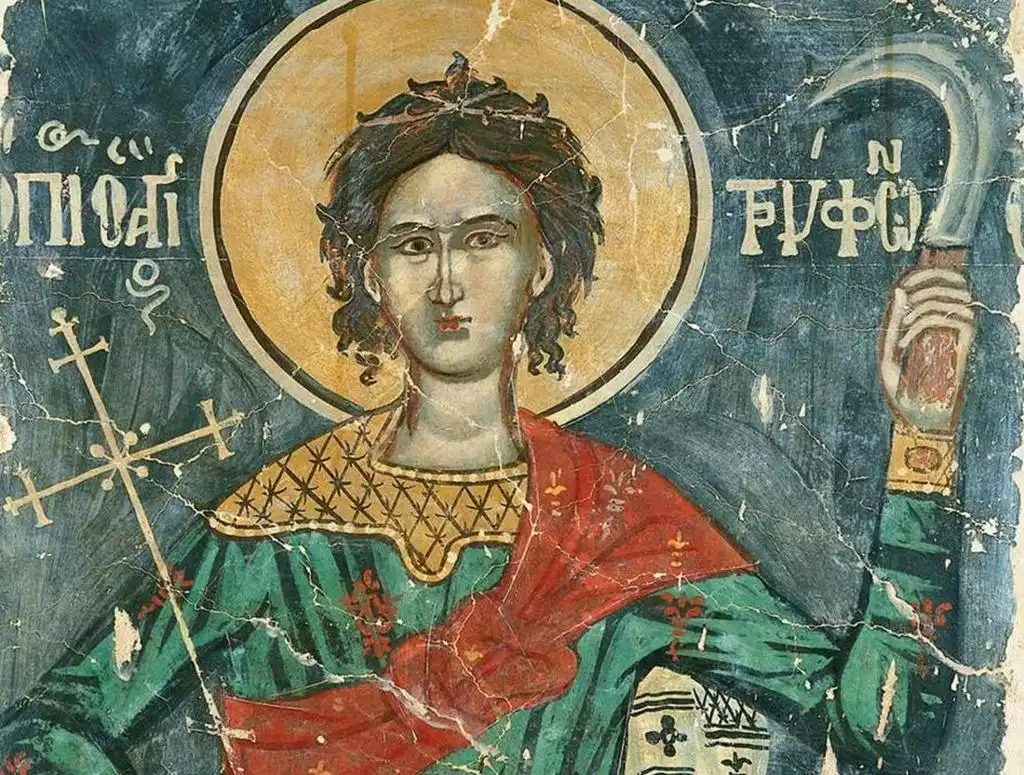
Exploring the Life and Legacy of Saint Tryphon
Saint Tryphon was born into a life of poverty in 3rd century Anatolia which marked the beginnings of his profound faith. Despite material hardships, he tended animals as a young boy while diligently studying scripture, prefiguring his future as a renowned Christian healer. His refusal of honors and riches spoke profoundly of his values. Ultimately persecuted for his faithfulness to Christ, the courageous saint’s death reflected his convictions through a tortuous martyrdom.
Early Life Fostered Idealism
His challenging upbringing planted seeds of spiritual growth that blossomed into his later grace-filled life. Born into poverty in 3rd century Phrygia, located in central Anatolia, the young boy was forced to tend geese from an early age to provide for his family. Yet, Tryphon pursued scriptural studies with fervor during this period, clinging to his faith while his family struggled materially.
What details shaped the saint-to-be during these formative years? Some accounts relate that Tryphon was orphaned, perhaps explaining his solitary focus on religion despite difficult straits. His choice to become a solitary herder allowed ample time for reflection and prayer in nature’s quiet beauty. This seemingly brought enlightenment, fostering sage wisdom beyond Tryphon’s youth. His tranquil character proved receptive to divine truths, laying groundwork for his famed miraculous healings.
While an impoverished, likely orphaned youth may understandably turn cynical given the circumstances, Tryphon’s unshakable idealism and studiousness represent an astonishing conviction. His embrace of poverty through sharing possessions also highlights the origins of a humble, spiritual existence clearly reflected in later years when lavish imperial rewards failed to sway him. In many ways, Tryphon’s early journey sowed the seeds of his eventual sainthood.
The details of his youth reveal a thought-provoking character arc from austerity to renown that gives insight into the makings of a venerated martyr. What other drivers molded Tryphon? Further attention to his influences can unveil the combination that produced such a principled Christian figure.
Fame and Persecution
His miraculous healings brought immense fame, yet also danger in an era of fervent Christian oppression. As the devout youth’s reputation for curing illnesses grew, word purportedly reached Roman Emperor Gordian III who sought Tryphon’s aid. His daughter had fallen gravely ill, afflicted by demonic possession according to accounts. With holy powers giving him the ability to cleanse sickness and evil spirits, Tryphon was uniquely equipped to remedy this disturbing malady.
Traveling to the capital upon the royal plea, Tryphon successfully exorcised the princess, displaying spiritual authority making even Roman deities seem wanting. Gordian profusely offered riches and high Imperial positions, yet true to his humble heart, Tryphon politely declined accolades.
This virtue soon met with enmity, however, as Gordian’s successor Decius initiated harsh persecution of Christians not long after he cured Gordian’s heir. Tryphon’s fame now invited danger given Decius’ violent suppression of Christianity. Officials in the Anatolian town of Nicea arrested and interrogated Tryphon on charges of sorcery and treason. When the healers’ direct proclamations of his steadfast faith led to gruesome torture, Tryphon maintained spiritual courage.
What motivated this fortitude facing violence for his beliefs? Did manifold miracles give him concrete confirmation that empowered his convictions? Assessing responses to both fame and condemnation spotlights critical facets of his sainthood.
Saint Tryphon’s principled rejection of temporal rewards and steadfast faith despite violent persecution cemented his sainthood. His early spiritual grounding paired with miraculous gifts enabled the convictions that spurred his grace-filled life and courageous martyrdom.
Feast Day: February 1
Patron Saint: Farmers, Gardeners, and Birds
References
“Saint Tryphon: His Life and Significance,” University of Athens. Accessed December 14, 2023.
“The Miracles and Teachings of Saint Tryphon,” Myrtidiotissa of Alimos. Accessed December 14, 2023.
